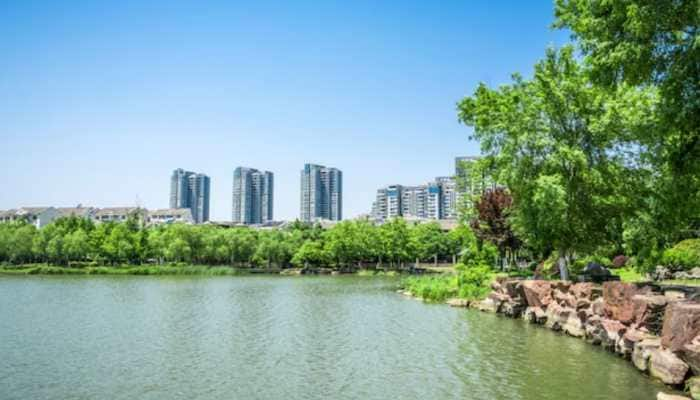Amid growing concern of Chinese debt trap, Kyrgyzstan Parliamentary Elections set for Oct 4
Parliamentary elections in Kyrgyzstan are held every five years. MPs are elected on the basis of party lists.
Trending Photos
)
Bishkek: Elections for 120-seat Kyrgyz Parliament 'Jogorku Kenesh' are scheduled for October 4, 2020. At least 16 political parties are in the fray this time whose candidates are to be chosen by 3.3 million voters. The election would be monitored by 24 long-term and 350 short-term observers from the Organisation for Security and Cooperation in Europe (OSCE) Office for Democratic Institutions and Human Rights.
Parliamentary elections in Kyrgyzstan are held every five years. MPs are elected on the basis of party lists. To prevent absolute dominance of one party, there is provision that one political subject cannot win more than 60 per cent of 120 mandates in the Parliament.
A party contesting the election has to receive a 7 per cent national vote threshold to get a seat assured in Parliament. In the current House, Birimdik Party leads with 28 MPs, followed by Mekenim Kyrgyzstan with 15 and Kyrgyzstan party with 14 MPs. 100 incumbent MPs are contesting the elections under different party banners.
Latest trends indicate that the President-backed Birimdik Party is most likely to emerge as the single largest party and form the next government in coalition with Mekenim Kyrgyzstan and Kyrgyzstan Party. Yuman Nuru Party is expected to be an ally.
Kyrgyzstan is susceptible to Chinese debt trap as China is the key business partner of Kyrgyzstan and also its largest creditor. Chinese debt constitutes 45 per cent of Kyrgyzstan's total foreign debt.
Kyrgyzstan has been asking China for deferment. China's delay in considering Kyrgyzstan’s request is indicative of the former's tactic of mounting pressure in return for some major favour, which otherwise would have been difficult.
The discontentment against China is growing within the country as the unemployment rate in the country stands at almost 20 per cent of the working population. The people are forced to rely on themselves amid speculations that the government is slowly becoming addicted to Chinese loans. China as always is more than forthcoming to provide further loans to cover the interest of existing loans.
For all the concerns in recent years that Kyrgyzstan was falling into a Chinese debt trap, through the first half of 2020 Bishkek had been meeting their commitments to Beijing.
Kyrgyzstan started to borrow large sums from China's Export-Import Bank (Eximbank) to finance infrastructure around 2010. Since 2016, annual Kyrgyz repayments to Eximbank have been almost equal to the amount it borrows, keeping debt to Eximbank at the same level. The Eximbank owns more than two-fifths of Kyrgyzstan’s nearly USD 4 billion foreign debt and has financed major transport and energy projects in the country.
There are chances that extremist groups may exploit the growing public discontent especially youth towards a more radical Islam from the state-supported traditional Kyrgyz Islam. As per the Kyrgyz government data (May 2019),the number of people accused of terrorism or extremism has grown five times in the past 7 years.
China has also made inroads into the country through State sponsored corruption targeting Kyrgyz officials. The China Road and Bridge Corporation that is building the Bishkek-Osh motorway inflated construction cost to defraud and siphon off money from Kyrgyz exchequer.
Stay informed on all the latest news, real-time breaking news updates, and follow all the important headlines in india news and world News on Zee News.
Live Tv







)
)
)
)
)
)
)
)
)
)
